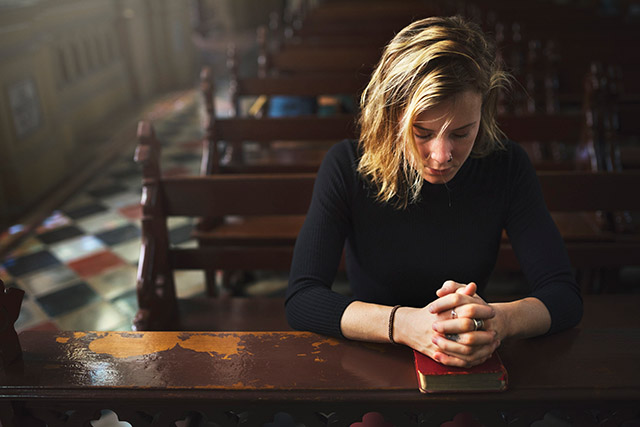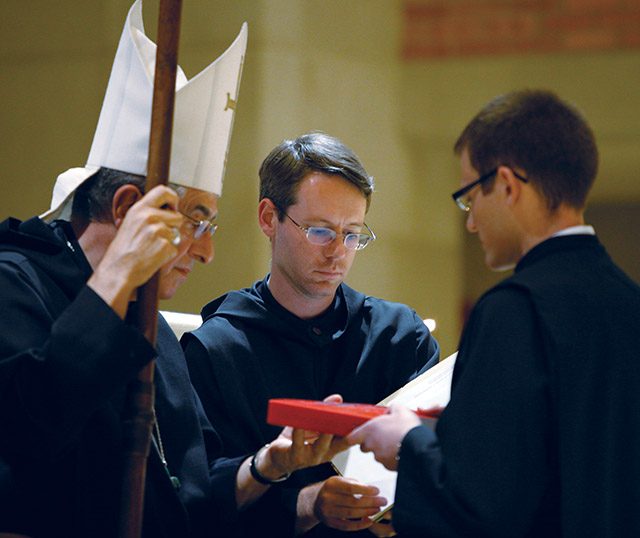Define your terms

(Photo: 123rf)
WHAT'S THE DIFFERENCE between apostolic and contemplative? Cloistered and monastic? Novice and postulant? If it sounds like religious are speaking Greek, we’re here to help interpret.
Apostolic
In the context of consecrated religious life, apostolic religious communities are engaged for the most part in active ministries. While prayer and community life are important to them, their members serve in a variety of ways: teaching, parish ministry, healthcare, social work, care for the elderly, work with young people, service to the poor, and many others.
Chapter
A meeting of the members of a religious community to discuss and decide on policy, leadership, and the direction of the community. Chapter meetings can occur at several levels, from the local to the international.
Charism
A religious community’s particular spirit, way of life, and focus, which grows out of its history, traditions, and founder. From the Greek word charisma meaning “gift,” charism guides decisions about mission.
Cloistered
Contemplative religious communities are often cloistered or partially cloistered—that is, they live separated from the rest of the world to be more focused on prayer, including prayer for the needs of the world. As cloistered religious they rarely leave their monasteries, and all or most of their work is done within the monastery itself, depending on the degree to which they are cloistered.
Contemplative
Members of contemplative religious communities focus on prayer, especially the Mass, praying daily together the Liturgy of the Hours, and individual prayer such as lectio divina, the prayerful reading of scripture. They tend to live in greater solitude than apostolic communities so that they can better direct their prayer and work toward contemplation, though some communities that consider themselves contemplative are also engaged in some active apostolic ministries.

Discernment
Reflecting on and praying about how to respond to God’s call to follow Jesus Christ as his disciple in a particular way of life.
Formation
The process of education and spiritual development that takes place during the early months of joining a religious community. Those entering the diocesan priesthood are involved in formation while they study at a seminary.
Missionary
Missionary communities focus on promoting the gospel and Good News for the poor in other countries or areas of their own country where the church is not yet present in a robust form. Missionaries serve in many different places in ministries such as preaching, teaching, advocacy, social services, and other forms of witness.
Monastic
Monastic communities fall somewhere between apostolic and cloistered. Monastic men and women place a high value on prayer and living in community life, but many are also engaged in active ministries. Monasticism centers on community life, work, and common and individual prayer.
Motherhouse
The principal home for a women’s religious community. The leader of the community lives there, and usually the community’s administrative offices are located in or near the same building.
Novice
A man or woman taking part in the initial stage of entering a religious community. The novice is typically involved in discernment, preparation, and formation activities, including study of the order’s charism, history, constitution, and way of life. This period usually lasts from 12 to 24 months and is called the novitiate. At its end, the novice can go on to take temporary vows of poverty, chastity, and obedience.

Nun
Although people use the terms nun and sister interchangeably, technically a nun belongs to a contemplative order, lives in a monastery, and devotes the majority of her time to prayer for the good of the world.
A sister who is not a nun belongs to an apostolic religious community, that is, a community that is involved in active ministry, such as education, justice, healthcare, parish work, advocacy, and social service.
Postulant
A man or woman requesting and still discerning membership in a religious community before becoming a novice. The period of postulancy usually lasts six months to two years.
Profession
The religious rite in which a person formally enters a religious community by taking vows. Profession follows a formation program of discernment, education, and spiritual development.
Spiritual direction
A process of periodic meetings with a spiritual director who offers advice and encouragement for deepening and strengthening one’s relationship with God and discerning God’s call.
Vows
As members of religious communities, priests, sisters, and brothers take vows of poverty, celibacy, and obedience. Many communities add a fourth or fifth vow related to their charism. In most religious communities new members take “temporary vows” for a specified length of time—and they may renew those temporary vows. The final, binding step is to profess “perpetual vows” or “final vows.”
Related article: VocationNetwork.org, “What is charism?”
Tags
- monastic
- apostolic
- discernment
- charism
- spiritual direction
- formation
- vows
- missionary
- cloistered
- motherhouse
- nun
- contemplative
- chapter
- novice
- postulant
- profession
Related
- Questions you’ll be glad you asked
- What monastic mystics got right about life
- Religious communities embrace diverse members
- How my parents responded when I became a brother
- Vocation Basics: You are already called—Message to youth from Pope Francis
- Meet the parents
- Charism: The gift that shapes lives
- What our vows mean
- Discover five treasures of religious life
- Religious making a difference Read More
Most Viewed
- Find your spirituality type quiz
- Questions and answers about religious vocations
- Celibacy quiz: Could I be a nun? Could I be a brother? Could I be a priest?
- Resources for older discerners or those with physical and developmental differences
- About Vocation Network and VISION Guide


